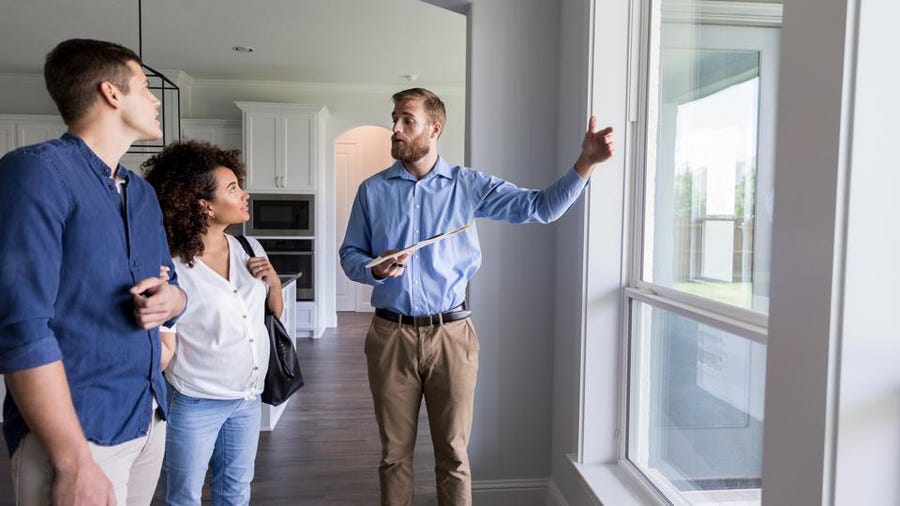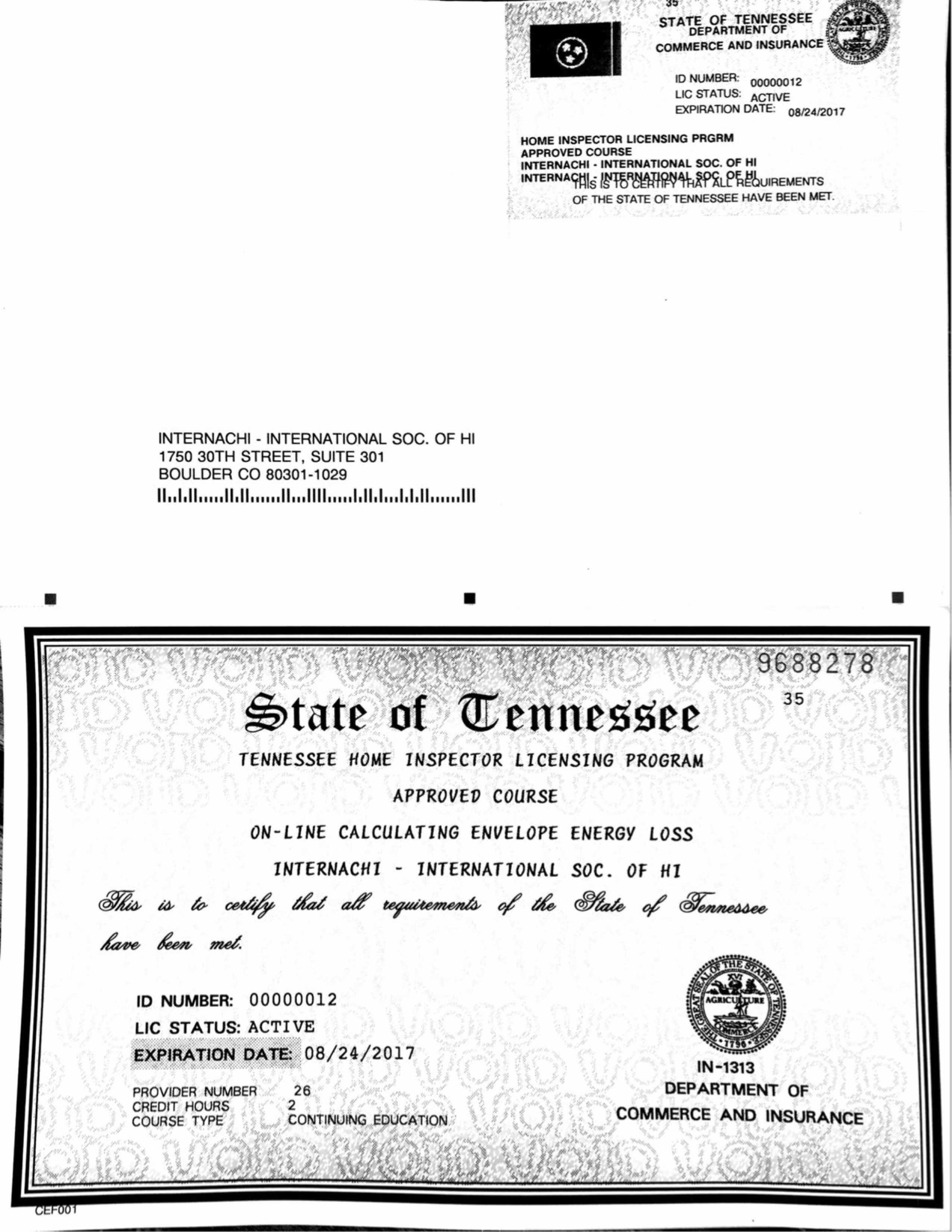
A license is necessary to become an agent in New York. Costs will vary depending upon your education and experience. Currently, a license can cost anywhere from $200 to $700. The cost of a license includes an education course and test fees. Your actual cost depends on how much you spend studying.
A real estate license is valid for four-years. You will need to complete seven hours each year of continuing education in order to renew your license. An annual fee will be required by the state. The requirements for licensing vary by state. There is no national exam. Some states require you to complete at least 90 hours in education before applying for a licence.
The process to obtain a New York license as a realtor is simple. The entire process can be completed in six to eight weeks. The pre-licensing education course must be completed by applicants. They will also need to pass a background check and take a licensing exam. After completing the application, applicants must submit it, along with fingerprints and a fee.

Depending on the type of license you are seeking, you can expect to spend between $250 and $500. This includes costs for the education and state exam. A real estate school in person can cost up to $700, while an internet class can cost less than 220.
Once you have your real estate license you must hang it for two years with a broker. A broker will guide you during this time. Many brokers offer training and mentoring programs for new agents. They typically cover a variety of expenses such as office supplies, photocopies and internet access. They usually also cover E&O.
Before you can work as a licensed real estate agent, it is necessary to obtain errors and omissions (E&O), Insurance. This policy is often sold by brokers. You should protect your interests as with any business. You can purchase an E&O policy for a small amount that will cover your legal defense as well as any losses.
A broker is required to obtain a New York real estate license. Typically, brokers will take new agents under their wing and make them feel at home. Many brokerages will charge monthly charges for training and space. Often, the broker will also pay for office supplies.

Most states won't permit you to practice without a licence. Some states will allow you and a broker to hang your license, while others will require you take an educational course in order to obtain a license. You must pass the real-estate licensing exam to become licensed.
Crash courses are a great way of preparing for your exam. Many courses include a free practice test that can help you prepare. These courses can also provide tips to help you pass the real estate exam.
FAQ
How can you tell if your house is worth selling?
It could be that your home has been priced incorrectly if you ask for a low asking price. A home that is priced well below its market value may not attract enough buyers. To learn more about current market conditions, you can download our free Home Value Report.
Should I rent or own a condo?
Renting could be a good choice if you intend to rent your condo for a shorter period. Renting saves you money on maintenance fees and other monthly costs. You can also buy a condo to own the unit. You can use the space as you see fit.
How long does it usually take to get your mortgage approved?
It depends on many factors like credit score, income, type of loan, etc. It takes approximately 30 days to get a mortgage approved.
Is it possible to sell a house fast?
It might be possible to sell your house quickly, if your goal is to move out within the next few month. You should be aware of some things before you make this move. First, you must find a buyer and make a contract. You must prepare your home for sale. Third, your property must be advertised. You should also be open to accepting offers.
What should I consider when investing my money in real estate
The first step is to make sure you have enough money to buy real estate. If you don’t have the money to invest in real estate, you can borrow money from a bank. You also need to ensure you are not going into debt because you cannot afford to pay back what you owe if you default on the loan.
It is also important to know how much money you can afford each month for an investment property. This amount must be sufficient to cover all expenses, including mortgage payments and insurance.
Finally, ensure the safety of your area before you buy an investment property. It would be best if you lived elsewhere while looking at properties.
What should I do before I purchase a house in my area?
It depends on how much time you intend to stay there. Save now if the goal is to stay for at most five years. If you plan to move in two years, you don't need to worry as much.
What time does it take to get my home sold?
It depends on many factors, such as the state of your home, how many similar homes are being sold, how much demand there is for your particular area, local housing market conditions and more. It takes anywhere from 7 days to 90 days or longer, depending on these factors.
Statistics
- It's possible to get approved for an FHA loan with a credit score as low as 580 and a down payment of 3.5% or a credit score as low as 500 and a 10% down payment.5 Specialty mortgage loans are loans that don't fit into the conventional or FHA loan categories. (investopedia.com)
- This means that all of your housing-related expenses each month do not exceed 43% of your monthly income. (fortunebuilders.com)
- Based on your credit scores and other financial details, your lender offers you a 3.5% interest rate on loan. (investopedia.com)
- 10 years ago, homeownership was nearly 70%. (fortunebuilders.com)
- Some experts hypothesize that rates will hit five percent by the second half of 2018, but there has been no official confirmation one way or the other. (fortunebuilders.com)
External Links
How To
How to Manage a Rental Property
Renting your home can be a great way to make extra money, but there's a lot to think about before you start. These tips will help you manage your rental property and show you the things to consider before renting your home.
This is the place to start if you are thinking about renting out your home.
-
What is the first thing I should do? Before you decide if you want to rent out your house, take a look at your finances. If you have debts, such as credit card bills or mortgage payments, you may not be able to afford to pay someone else to live in your home while you're away. Your budget should be reviewed - you may not have enough money to cover your monthly expenses like rent, utilities, insurance, and so on. It might not be worth the effort.
-
How much will it cost to rent my house? There are many factors that go into the calculation of how much you can charge to let your home. These include factors such as location, size, condition, and season. You should remember that prices are subject to change depending on where they live. Therefore, you won't get the same rate for every place. The average market price for renting a one-bedroom flat in London is PS1,400 per month, according to Rightmove. This means that if you rent out your entire home, you'd earn around PS2,800 a year. That's not bad, but if you only wanted to let part of your home, you could probably earn significantly less.
-
Is it worth it? Doing something new always comes with risks, but if it brings in extra income, why wouldn't you try it? Make sure that you fully understand the terms of any contract before you sign it. You will need to pay maintenance costs, make repairs, and maintain the home. Renting your house is not just about spending more time with your family. You should make sure that you have thoroughly considered all aspects before you sign on!
-
Are there any advantages? Now that you have an idea of the cost to rent your home, and are confident it is worth it, it is time to consider the benefits. There are plenty of reasons to rent out your home: you could use the money to pay off debt, invest in a holiday, save for a rainy day, or simply enjoy having a break from your everyday life. You will likely find it more enjoyable than working every day. If you plan ahead, rent could be your full-time job.
-
How can I find tenants Once you've made the decision that you want your property to be rented out, you must advertise it correctly. Listing your property online through websites like Rightmove or Zoopla is a good place to start. Once potential tenants reach out to you, schedule an interview. This will allow you to assess their suitability, and make sure they are financially sound enough to move into your house.
-
What can I do to make sure my home is protected? If you are worried about your home being empty, it is important to make sure you have adequate protection against fire, theft, and damage. Your landlord will require you to insure your house. You can also do this directly with an insurance company. Your landlord will likely require you to add them on as additional insured. This is to ensure that your property is covered for any damages you cause. If your landlord is not registered with UK insurers, or you are living abroad, this policy doesn't apply. In such cases you will need a registration with an international insurance.
-
Even if your job is outside the home, you might feel you cannot afford to spend too much time looking for tenants. You must put your best foot forward when advertising property. A professional-looking website is essential. You can also post ads online in local newspapers or magazines. Also, you will need to complete an application form and provide references. While some people prefer to handle everything themselves, others hire agents who can take care of most of the legwork. In either case, be prepared to answer any questions that may arise during interviews.
-
What happens after I find my tenant?After you've found a suitable tenant, you'll need to agree on terms. If you have a contract in place, you must inform your tenant of any changes. You can negotiate details such as the deposit and length of stay. It's important to remember that while you may get paid once the tenancy is complete, you still need to pay for things like utilities, so don't forget to factor this into your budget.
-
How do you collect rent? When the time comes to collect the rent, you'll need to check whether your tenant has paid up. You'll need remind them about their obligations if they have not. You can subtract any outstanding rent payments before sending them a final check. You can always call the police to help you locate your tenant if you have difficulty getting in touch with them. They will not usually evict someone unless they have a breached the contract. But, they can issue a warrant if necessary.
-
What are the best ways to avoid problems? Renting out your house can make you a lot of money, but it's also important to stay safe. Install smoke alarms, carbon monoxide detectors, and security cameras. Check with your neighbors to make sure that you are allowed to leave your property open at night. Also ensure that you have sufficient insurance. You must also make sure that strangers are not allowed to enter your house, even when they claim they're moving in the next door.